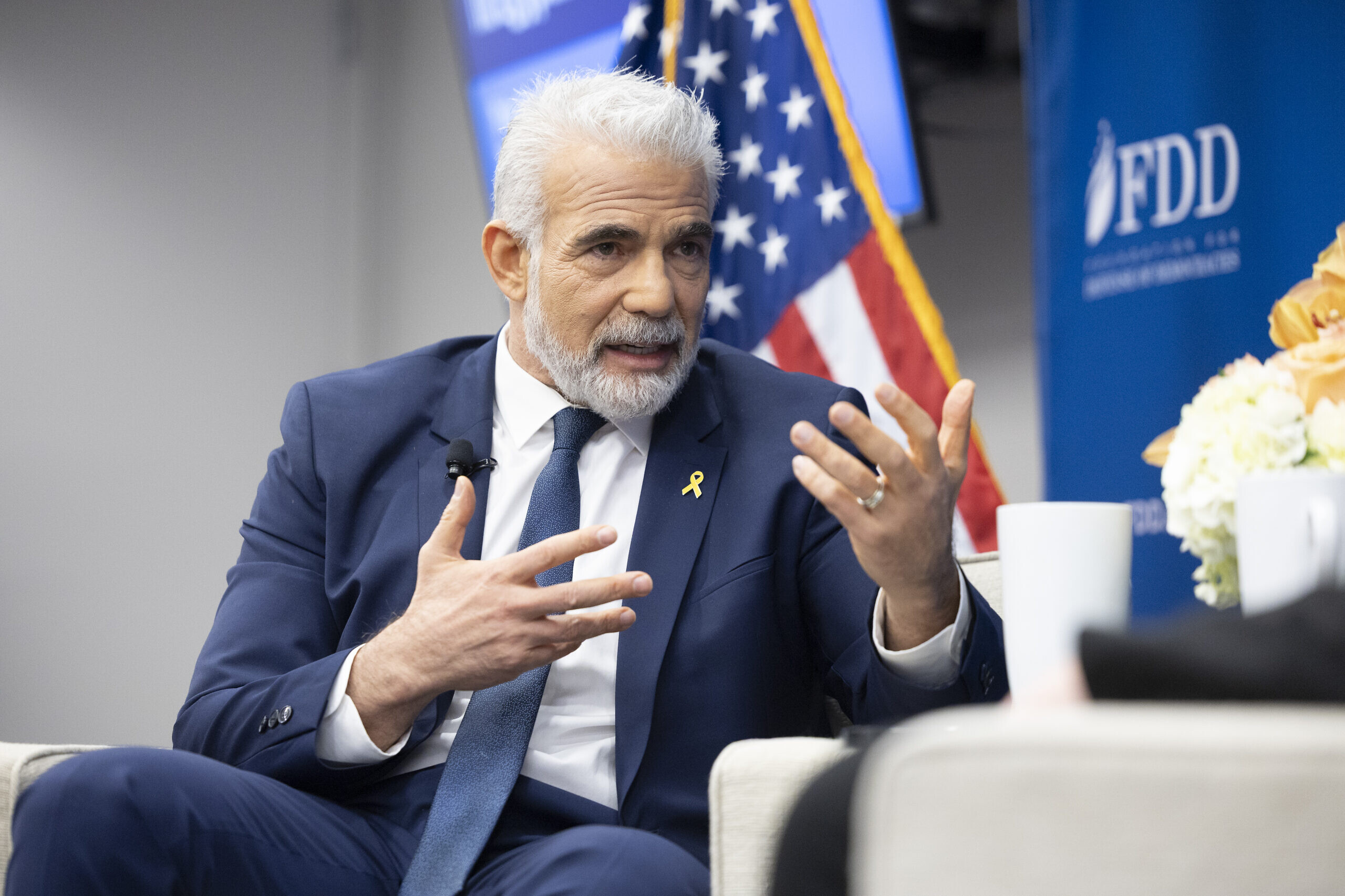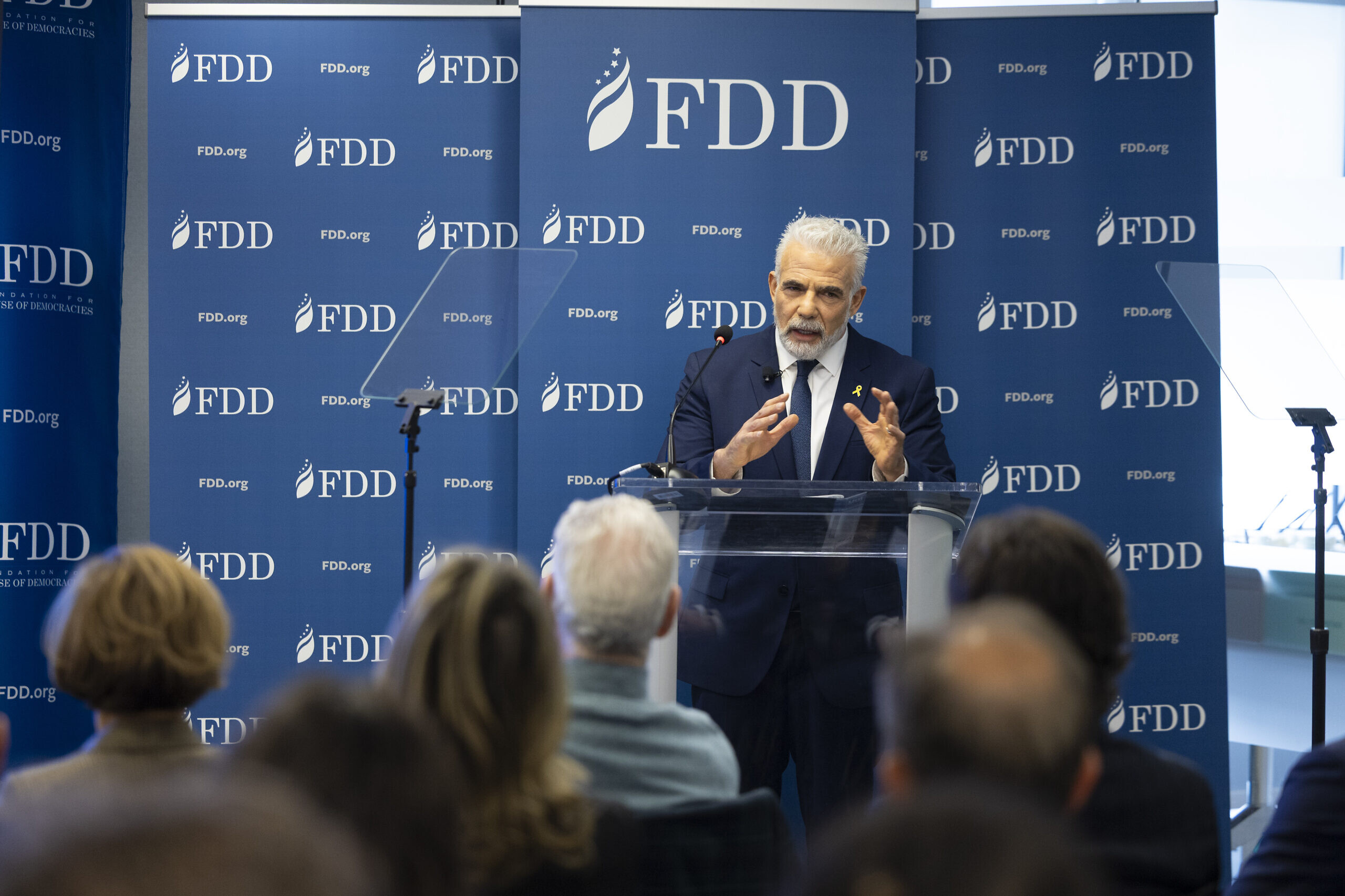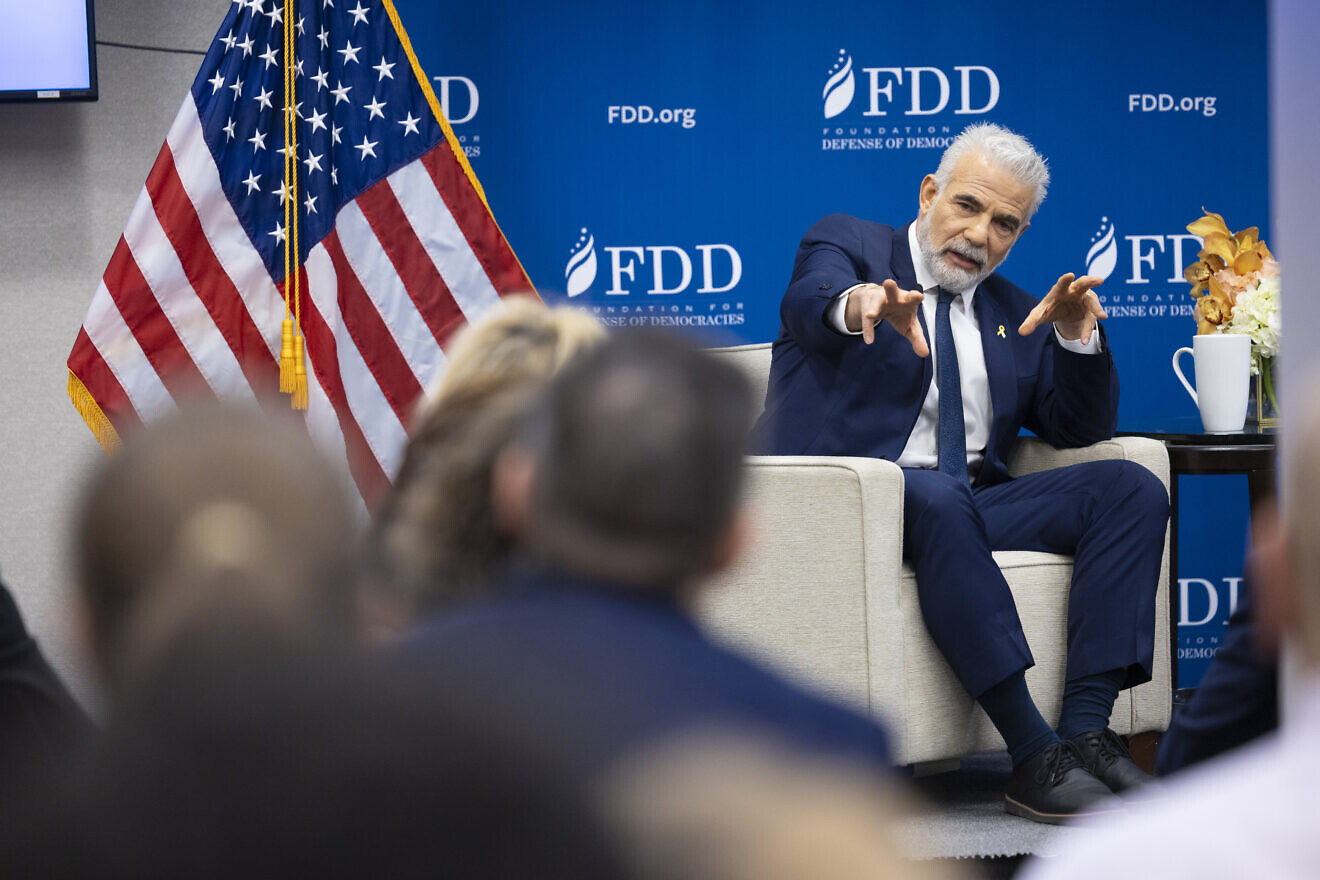Yair Lapid, the Israeli opposition leader, floated his plan for a post-war Gaza at a Foundation for Defense of Democracies event on Tuesday, calling for long-term Egyptian guardianship of the Strip in exchange for forgiveness of Cairo’s massive external debt.
The former Israeli prime minister and former foreign minister acknowledged flaws in his Egyptian Solution plan but described it as a typical dilemma of “having to choose between bad and bad.”
The plan would see Cairo manage military and civilian affairs in Gaza for eight years, with an option to extend another seven years, before the Palestinian Authority would assume control after a period of demilitarization and deradicalization.
Gulf states would also commit to providing forces, per Lapid’s plan.
Under Egyptian guardianship of Gaza, the Palestinian Authority would undertake substantial reforms of corruption and education.
Lapid cited Cairo’s prior management of the enclave for decades and its economic troubles, which puts its government at risk, and the region’s woes. He said that the Muslim Brotherhood and other groups, which are unfriendly to Israel, could oust Egyptian President Abdel Fattah el-Sissi and rise to power.
“That is bad news for us all,” Lapid said.
“Egypt is a key, strategic partner and a reliable ally for almost 50 years,” he added. “A strong, moderate, pragmatic Sunni state and a crucial player in the region. President el-Sissi is a stabilizing force in the Middle East and Africa. He is a long-time fighter against religious fanaticism.”
It remains unclear under Lapid’s plan how Egypt would be held to account in disarming Hamas. Critics say that Cairo has often turned a blind eye toward Gazan terrorist activity, or has facilitated the terror group’s tunnel smuggling across the border outright.

‘A constant state of chaos’
Israel would maintain a military presence around Gaza’s perimeter, with a joint Israel-Egypt-U.S. mechanism handling immediate threats to the Jewish state, per Lapid’s plan.
The vision didn’t appear to specify exactly what roles Saudi Arabia and other Arab partners would play in Gaza’s reconstruction without Israel advancing a political settlement leading to a Palestinian state.
It also didn’t seem to detail how the Gazan population would be deradicalized within a relatively short time frame.
The plan relieves Egypt and Jordan of the burden of U.S. President Donald Trump’s demand that Gaza be cleared out and its residents relocated, according to Lapid.
“Israel cannot agree to Hamas remaining in power,” he said. “The Palestinian Authority is neither willing nor able to manage Gaza in the near future. Israeli occupation is neither desirable nor possible. A constant state of chaos is both a security threat and a humanitarian disaster.”
Lapid presented his plan to the Trump administration, per a JNS source with knowledge of his actions, but the opposition leader’s office would not confirm that any such meetings took place while Lapid was in Washington.
JNS asked Lapid if he chose the U.S. capital to make his announcement to draw the attention of American officials. “I already got the attention of the Americans, because we’ve discussed this,” Lapid told JNS.
Lapid acknowledged the “complicated” nature of the situation and told JNS that he wanted to present his plan “in a think tank, because I want to gather around us as many thinkers as possible.”
“We felt that this is the right place to bring common wisdom into something that is an ongoing process,” he told JNS.
Lapid told attendees at FDD that his plan doesn’t contradict Trump’s vision for the Strip—when the president said alongside Israeli Prime Minister Benjamin Netanyahu at the White House on Feb. 4 that the United States would “take over Gaza”—but incorporates parts of it. Those include potential U.S. business opportunities in the Strip and offering unimpeded emigration to Gazans who want to leave and have somewhere to go.
Trump’s surprise announcement of U.S. intent to reshape Gaza into a Riviera-style destination, while forcibly relocating its population, spurred a global conversation about the Strip’s future.

‘We need an alternative government in Gaza’
Lapid told JNS that he thinks that his plan would do the same within Israel.
“From the little chance I had to look, it already has,” he said of comments on social media. “I think there’s a hunger for new ideas for a solution. Gaza looks like a dead-end now.”
The Israeli government has not presented a plan for who will manage Gaza in a post-war environment, and “part of my job as leader of the opposition is to bring other possibilities and ideas to the table,” Lapid told JNS.
“I think it’s the right idea. I think it’s doable. I think it opens a lot of possibilities for Israel,” he said. “More important than anything else, I think it adds to Israel’s security.”
Shortly after Lapid’s presentation, Saudi state-owned Al Arabiya reported that Egyptian officials said that “Egypt will not be led by an attempt to administer Gaza.”
Egypt ruled Gaza from 1948 to 1956 and again from 1957 to 1967, with the backing of the Arab League.
Cairo will host an emergency Arab League summit on March 4. Attending countries are expected to agree on a plan for Gaza to counter Trump’s plan.
There was no immediate reaction from the Israeli government to Lapid’s plan.
JNS asked the opposition leader if he thinks he will get any support from Jerusalem.
“I don’t know about the government,” he told JNS. “I can tell you that there is no Israeli citizen who doesn’t understand that we need an alternative government in Gaza.”
Egypt’s working relationship with Gaza since Hamas came to power means that it knows how to work in Gaza, according to Lapid.
“I’m not claiming that this is a perfect solution,” he told JNS. “It’s the best solution of all the bad solutions we have.”


























